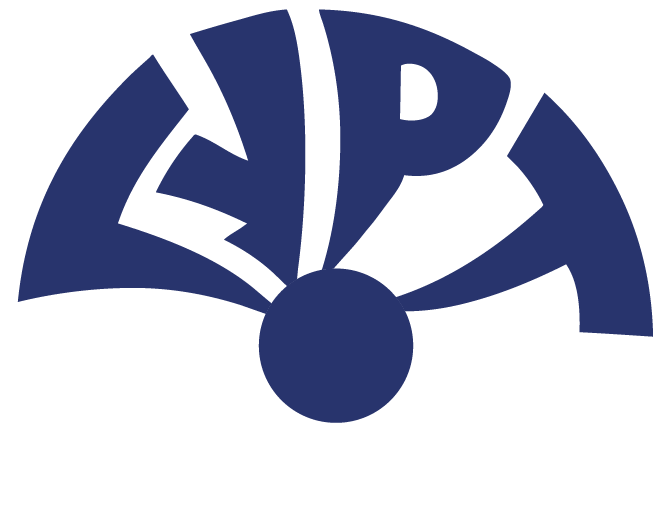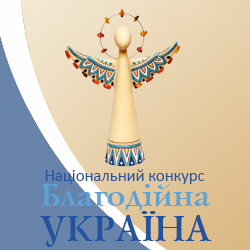


Експерт з оцінки проекту
04.07.2018
Save the Children шукає експерта з оцінки проекту (далі - англ.).
Background
Save the Children is an international non-government organization founded in 1919 and registered in the United Kingdom. Our vision is that of a world in which every child attains the right to survival, protection, development and participation. Our mission is to inspire breakthroughs in the way the world treats children and to achieve immediate and lasting change in their lives.
Since 2007, Save the Children has been working in Ukraine through a consortium partnership with local organisations including Women’s Consortium of Ukraine to strengthen child rights advocacy and implementation. Since 2014, Save the Children International (SCI) has been responding to the humanitarian crisis in eastern Ukraine by providing emergency and lifesaving interventions in 4 oblasts with local partners, addressing the needs in protection, shelter, food security and livelihoods, and education. Furthermore, SCI has been supporting the education reform with development work in 11 oblasts across Ukraine, in addition to Kyiv-based policy and advocacy work for the endorsement of the Safe Schools Declaration by the Government of Ukraine.
In 2016, the operation shifted near the contact line of Donetsk and Luhansk GCA and expanded with new activities through a more integrated approach with resilience and gender sensitive programming. The main office moved from Dnipropetrovsk to Sloviansk, closer to the conflict affected areas where most of the humanitarian needs are. From Sloviansk’s office, Save the Children operates in Northern and Southern Donetsk and Luhansk GCA in the sectors of child protection, education and child poverty. SCI operates in hotspots along the contact line, and in areas of Donetsk GCA with high populations of IDPs.
This assignment will focus on SCI’s project “Schools as Zones of Peace” (SZOP) implemented in 7 schools in Donetsk and Luhansk oblasts of Government Controlled Areas (GCA). A pilot phase in 3 schools started in May-December 2017, was scaled up to 7 schools in GCA in 2018 and will start a second phase in August 2018 in the same schools. Hence the evaluation to be conducted in July 2018 will serve to take stock of results and provide recommendations for the following phase and future scale up. The project is funded by the Norwegian Ministry of Foreign Affairs.
SZOP is a global SCI-led project aimed at securing safe learning environments and has since 2014 been piloted in conflict-affected settings including Democratic Republic of Congo, occupied Palestinian territories, Niger, Nigeria, North East Syria and South Sudan. The SZOP project aims to secure children’s safety at school, and to avoid that education is disrupted because of armed conflict. We work with children, school management and local communities, and advocate to influence local, national and global policies.
The current phase of the SZOP project is being implemented in 8 schools – all schools are located in close proximity to the contact line. In each school, School Safety Committees were established with students, parents and teachers, trained on child rights, school safety and safety plans were developed taking into account risks and resources identified. The following projects were selected by committees as a priority for implementation in their school: renovation of floor in the school, solar battery lamp on the school territory, water tanks, bridge reconstruction in the community to ensure children safety on the way to school. In addition, school staff were trained on topics identified during the baseline assessment, including non-violent communication and emotional burnout. Child led advocacy trainings and sessions were held in SZOP schools for children of 9-11 grade. During interactive sessions boys and girls got familiar with the Safe Schools Declaration, the UN Convention on the Rights of the Child, the concept of advocacy, international examples of successful advocacy campaigns and the main steps to design and advocacy campaign. As a result of the workshop, children prepared their own advocacy material. A partnership with the Institute of Educational Content Modernization was established to include the Safe Schools Declaration and its principles in teacher trainings – at the time of writing, the module is being finalized. SCI is also involved at the local, national and global level for the endorsement of the Safe Schools Declaration by the Government of Ukraine.
2. Scope and Focus of the Evaluation
This project started with an initial pilot phase in 3 schools for the period May 2017-December 2017, and was then scaled up to 7 schools during August 2017-July 2018. It is expected that a third phase will continue in the same 7 schools for the period August 2018-March 2019. Hence, at the end of the current phase, it is timely to take stock of lessons learnt, what has worked well and what has not, to inform the next phase of the project.
The objective of this evaluation is to provide a comprehensive analysis of the project’s implementation spanning August 2017-July 2018, to highlight strengths and weaknesses, generate findings, document lessons learned, and provide practical recommendations to be shared with key stakeholders and used by implementing parties for follow up and inform the design of future projects.
2.1. Evaluation Purpose
The purpose of the evaluation is to:
(a) Assess the extent to which the project met their objectives and the technical strength of the program
(b) Recommend improvements for longer-term strategies, focusing on program and management quality, program integration and accountability, and contribute to learning.
2.2. Evaluation Questions
This external evaluation will serve to answer the following research questions:
(a) To what extent has the project met its objectives? To what extent has the project incorporated and addressed cross-cutting issues (gender, inclusion, resilience) to improve its quality?
(b) To what extent does the project meet the OECD/DAC criteria of relevance, efficiency, effectiveness, sustainability and impact?
(c) What are the main lessons learnt and recommendations to different stakeholders, at different levels, for future phases of implementation?
2.3. Evaluation Criteria
To answer the second research question, the consultant is expected to follow the OECD/DAC evaluation criteria as follows:
(a) Relevance:
a. How relevant were the activities to the schools and communities where the project was implemented?
b. To what extent the objectives of the project are supporting the needs of targeted beneficiaries in the targeted areas? How were cross-cutting issues mainstreamed in the project approach to achieve high quality results (gender, inclusion, resilience)?
c. To which extent the project stakeholders including the Ministry and Departments of Education and Science, the Education Cluster are aware and engaged in supporting program objectives?
(b) Efficiency:
a. Are the project’s achieved outputs/outcomes consistent with the intended results and objectives in supporting the targeted beneficiaries?
b. To what extent were the objectives achieved / are likely to be achieved?
c. Were the project’s activities implemented and achieved on-time, and how? Identify the key underlying factors that affected the project implementation (Positive/Negative).
d. Was the project implemented in the most efficient way compared to alternatives?
e. How adequate is the project’s monitoring and evaluation system for assessing its achievements, sustainability, and for capturing relevant lessons?
(c) Effectiveness
a. To what extent did the project contribute to children’s resilience and wellbeing in the targeted schools?
b. What challenges were confronted by the project and how were these addressed?
c. What have been the intended results of the SZOP at country level so far? How well are advocacy and programmatic efforts integrated to achieve common goals? How well are education and child protection approaches integrated in the project?
d. What factors may explain achievement and non-achievement of results?
e. Have interventions had any likely unintended consequences, positive or negative?
f. What has been the role of child participation in achieving results?
(d) Impact:
a. What real difference has the project made to beneficiaries and how?
b. What are the positive and negative changes produced by the activities on beneficiaries and target communities?
c. Have there been any unforeseen impacts?
(e) Sustainability:
a. To what extent did the program plan and implementation program contribute to sustainability?
b. Assess preliminary indications of the degree to which the project results are likely to be sustainable beyond the project’s lifetime and how the project activities contributed to that, and provide recommendations for strengthening sustainability.
c. To what extent did community and (local and national) authorities’ engagement in the program activities contribute to their sustainability?
d. Are interventions designed and implemented in a manner that supports longer term needs in the work on protecting education from attacks?
2.4. Evaluation Methodology
The methodology for evaluating the research questions should be based on mixed-methods (qualitative and quantitative). SCI expects a child participatory and rights-based approach for the data collection methodology. Tools used for the baseline will be shared with the consultant.
3. Timeframe and deadlines
The timeframe for the evaluation is as follows:
4. Roles and responsibilities
The consultant will:
- Comply with SCI’s safety and security rules, as well as SCI’s Child Safeguarding (CSG) Policy.
- Organize all logistical arrangements (transportation to and from Sloviansk, accommodation, subsistence, translation, insurance, any other costs).
- Make use of their own computer, printing materials etc.
SCI will:
- Provide the consultant with a security and CSG briefing upon the start of the assignment.
- Provide the consultant all relevant project documents (proposal, logframe, reports, baseline/endline from previous phase)
- Support in organizing meetings with the main stakeholders (including schools)
- Provide transportation from Sloviansk to schools targeted by the project.
How to apply
Interested candidates are required to send a cover letter, CV and detailed financial offer. Oleksandr.Nechyporko"at"savethechildren.org
Контакти
- Oleksandr.Nechyporko”at”savethechildren.org








Коментарі